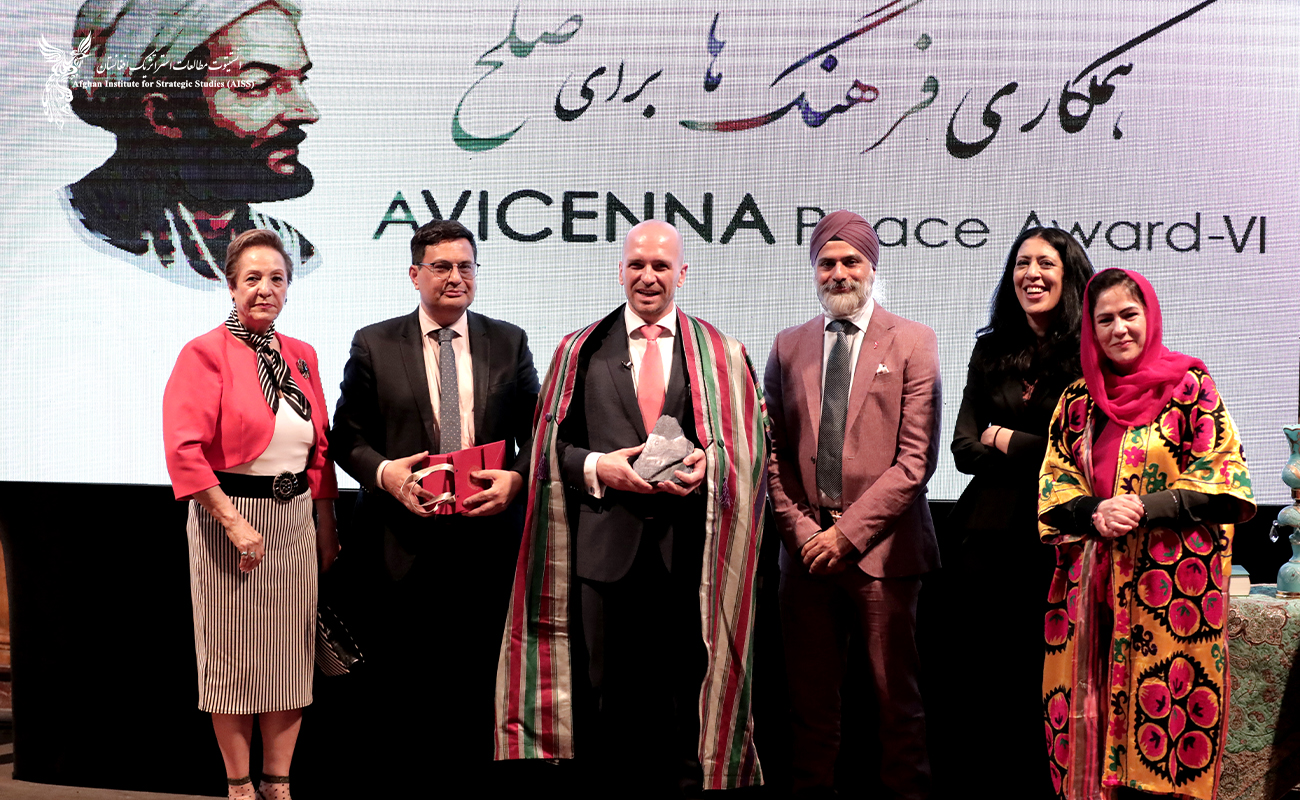6th Avicenna International Peace Award Ceremony
The Sixth Avicenna International Award for Intercultural Cooperation for Peace was held on the evening of Thursday, 26 June 2025, at St John the Baptist Church in London. The ceremony opened with a video performance featuring Muslim, Christian, and Jewish artists singing together in the presence of Pope Francis and the King of Morocco. This symbolic act of interfaith harmony established the evening’s moral tone, positioning intercultural solidarity not as an abstract ideal but as a lived, shared commitment across spiritual traditions and geographies.
Dr. Davood Moradian, Director General of the Afghan Institute for Strategic Studies, delivered the welcoming remarks by reflecting on the meaning of “honor” in global politics. Drawing a stark contrast between Albania’s ethical response to the Afghan crisis and the indifference of world powers, he framed Prime Minister Edi Rama’s leadership as a reminder that moral clarity and political courage are still possible, even in moments of collective retreat.
Wendy Chamberlain MP, a UK parliamentarian and long-time advocate for Afghan women and girls, offered a keynote address in which she praised the Albanian government’s role in the Tirana Summit and its concrete support for Afghan refugees. She spoke of political responsibility not as a slogan, but as action, recalling how Albania gave Afghan women space and safety when others failed to do so.
The evening featured a screening of Roya Sadat’s documentary, “The Sharp Edge of Peace,” an evocative portrayal of Afghan women’s active and complex role in the peace negotiations. It captured how, despite structural obstacles, they fought for a place and a voice in shaping the country’s political future. That struggle did not end with the fall of Kabul; it continued in the streets, in the defiant protests led by women across the country.
Fawzia Koofi, former Deputy Speaker of the Afghan Parliament, delivered a personal speech recalling the day she learned an 11 year old Afghan girl had taken her own life after being barred from school. That single story, she said, stood for thousands. Koofi emphasized that the struggle for Afghan women’s rights is not a story of victimhood, but of unfinished resistance and the need for international actors to act not in pity, but in partnership.
Zehra Zaidi, lawyer, campaigner, and founder of Planetary Civics, offered a powerful reflection on the idea of principled foreign policy. She described Albania’s decision to welcome Afghan evacuees as a rare act of courage in an age of indifference, one that should shame much larger nations into rethinking their silence. For her, Albania’s “yes” in 2021 was not just an act of refuge, but a moral intervention in the collapsing architecture of global responsibility.
The award was formally presented to Ambassador Uran Ferizi on behalf of Prime Minister Edi Rama. Before his acceptance message was played, a short tribute video titled “Thank You, Honourable Edi Rama” recounted Albania’s response to the fall of Kabul and the quiet dignity with which it welcomed hundreds of Afghan refugees. The film underscored the human side of diplomacy, evacuations made possible not by abstract policies, but by the choices of real people in power.
In his recorded acceptance message, Prime Minister Rama reaffirmed Albania’s commitment to intercultural cooperation and its belief that standing with the oppressed is not an act of generosity, but a duty. He thanked the Afghan people for their strength and expressed hope that the international community would not forget what is still unfolding in Afghanistan.
The program featured musical performances by Elaha Soroor and three Albanian artists—Greta Papa, Bruno Heinen, and James Kitchman—and concluded with a shared moment of memory across nations. The Avicenna Peace Award served as a reminder that peace is not merely the absence of war, but the presence of human responsibility.

